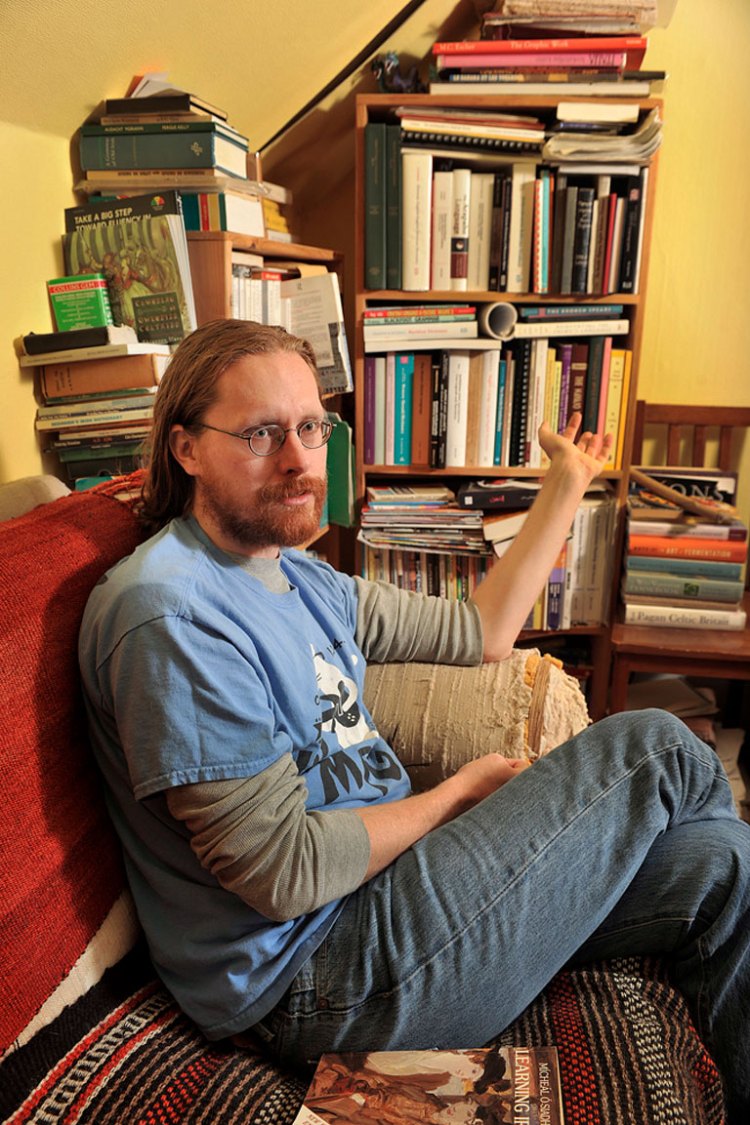Eric Russell, Staff Writer
erussell@pressherald.com
Follow on Twitter: @PPHEricRussell
Conor McDonough Quinn can’t save a language. No one person can, he said. That responsibility lies with an entire speech community.
But Quinn, a Portland native who has degrees from not one but two Ivy League schools, is trying to make it easier for one American Indian tribe in Maine to preserve their language.
Earlier this year, the University of Maine, the Penobscot Nation and the American Philosophical Society received a joint grant of $340,000 from the National Endowment for the Humanities. Their goal? To create a comprehensive Penobscot dictionary that would be the first of its kind ever published. Quinn will oversee its creation.
He has no ties to the Penobscot, other than an interest in language, but Quinn said the importance of preserving languages is vital.
“All it takes is one turn of the generational wheel to lose,” he said last week from his third-floor apartment on Munjoy Hill.
The Penobscot Nation, based on Indian Island just north of Bangor, is one of four tribes native to Maine. Quinn has worked with each tribe in one capacity or another.
One of the biggest reasons that American Indian languages are in peril is shame, he said. Children used to be shamed, even physically, and discouraged from using their native language in school. Now, the shame is among the young people who have lose the ability to communicate with their parents or grandparents in their native language.
Quinn hopes his project reverses that trend. Language, he said, is the biggest window to culture. The benefits are incalculable.
“I can say from having the privilege of learning (other languages), you never see the world the same way again,” he said.
Send questions/comments to the editors.



Success. Please wait for the page to reload. If the page does not reload within 5 seconds, please refresh the page.
Enter your email and password to access comments.
Hi, to comment on stories you must . This profile is in addition to your subscription and website login.
Already have a commenting profile? .
Invalid username/password.
Please check your email to confirm and complete your registration.
Only subscribers are eligible to post comments. Please subscribe or login first for digital access. Here’s why.
Use the form below to reset your password. When you've submitted your account email, we will send an email with a reset code.